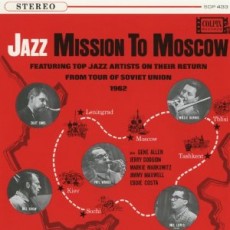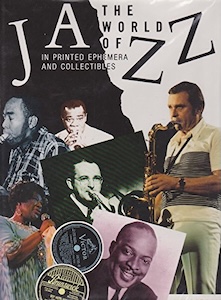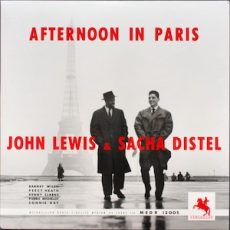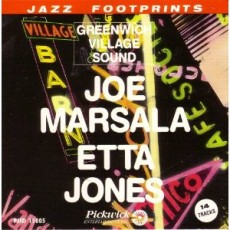
Daily Dose Of Jazz…
Jimmy Maxwell: The Trumpet Master You’ve Heard a Thousand Times
Born on January 9, 1917, in Stockton, California, Jimmy Maxwell was practically born with a trumpet in hand—he picked up the instrument at the remarkable age of four. Even as a child prodigy, he understood the value of serious training, studying throughout the 1930s with a roster of legendary brass teachers, including the renowned Herbie Clarke.
A Young Gun in the Swing Era
During the vibrant 1930s, Maxwell’s precocious talent found him working alongside some of the biggest names in jazz: Gil Evans, Jimmy Dorsey, vocalist Maxine Sullivan, and bandleader Skinnay Ennis. His big break came when he joined the prestigious Benny Goodman Orchestra—a gig that announced his arrival as a world-class player.
The Golden Age of Television
In 1943, Maxwell transitioned to what would become a legendary three-decade run as a studio musician for NBC. Night after night, his trumpet graced America’s living rooms through The Perry Como Show, The Patti Page Show, The Pat Boone Show, and The Tonight Show. While many musicians might have settled into such comfortable work, Maxwell’s restless talent demanded more.
A Secret Weapon on Countless Sessions
Maxwell’s studio work was merely the foundation. In 1962, he toured the Soviet Union during the height of the Cold War—music as cultural diplomacy. He appeared on hundreds of recordings and commercials, becoming one of those invisible giants whose sound defined an era. As a sideman, he lent his brilliant tone to sessions with Woody Herman, Count Basie, Duke Ellington, Oliver Nelson, Gerry Mulligan, Maynard Ferguson, Quincy Jones, the New York Jazz Repertory Company, and Chuck Israels’ National Jazz Ensemble.
That Haunting Solo
Perhaps Maxwell’s most iconic moment came when he played the unforgettable trumpet solo for The Godfather soundtrack—that lonely, haunting theme that perfectly captured the film’s operatic melancholy. Millions heard it; few knew the master behind it.
Full Circle
Later in life, Maxwell returned to his roots, working with Dixieland jazz and swing ensembles and even reuniting with Benny Goodman for nostalgic performances. In 1977, he finally stepped into the spotlight as a leader, recording a session for Circle Records—a rare glimpse of Maxwell unfiltered.
Though he eventually retired from recording and performing, Maxwell never stopped teaching. From 1950 until 2001—an astonishing fifty-one years—he passed on his knowledge to new generations of brass players. When he passed away on July 20, 2002, the world lost not just a brilliant musician, but a patient mentor who had helped shape the sound of American music for over seven decades.
If you’ve watched television, heard a commercial, or listened to jazz from the mid-20th century, you’ve almost certainly heard Jimmy Maxwell’s trumpet—even if you never knew his name.
More Posts: history,instrumental,jazz,music,trumpet

VANESSA RUBIN
Vanessa Rubin is a revered jazz vocalist and storyteller celebrated for her crystalline clarity, soulful warmth, and bold improvisational style. Born in Cleveland to Trinidadian and Louisiana parents, her sound bridges Caribbean rhythm, classic jazz elegance, and Motown soul. Since launching her career in 1980 in Cleveland’s legendary clubs, Rubin has built an international performance and education legacy.
Signed to Novus/RCA in 1992, she released five albums, including chart-topping Soul Eyes (1992) and Pastiche (1993). Her acclaimed one-woman musical, Yesterdays: An Evening with Billie Holiday, earned a 2011 Kevin Klein Award nomination. Rubin continues touring globally, producing, teaching, and championing lyrical storytelling in jazz.
The Band: Miki Hayama ! Piano | Richie Goods ~ Bass | Alvin Atkinson ~ Drums | Patience Higgins ~ Tenor Saxophone
Cover: Free
More Posts: adventure,bandleader,history,instrumental,jazz,museum,music,preserving,travel,vocal

On The Bookshelf
The World of Jazz | Jim Godbolt
This book is exciting and interesting in so many ways. It is filled with amazing pictures from the Jazz Age that make history feel real and alive. The images tell the story of how jazz began in New Orleans and traveled all over the world, growing into the music we know today.
The author, jazz historian Jim Godbolt, clearly loves jazz, and his passion shines through every page. He doesn’t just show photos of musicians and famous places. He also shares colorful artwork from record covers, posters, magazines, and record labels. Some of these designs are legendary, especially posters for Dizzy Gillespie and Jazz at the Philharmonic, as well as jazz magazines like Record Changer.
The story of jazz is told through old newspapers, posters, books, reviews, and rare photographs. Many of these items are hard to find, which makes the book feel like a treasure chest of history. You learn that jazz is not only about music, but also about how it was shared, recorded, advertised, and turned into a business.
The book shows how jazz started with young, self-taught musicians who had very little, and how it slowly became a huge, worldwide industry. It is a book you can read again and again. Every time you look at the pictures, you notice something new—from poor neighborhoods and riverboats to exciting nightclubs and beautiful concert halls around the world.
With its big pages and powerful images, this book is fun to explore, easy to enjoy, and full of inspiration. I highly recommend it.
The World Of Jazz: 1990 | Jim Godbolt

Requisites
Afternoon in Paris ~ John Lewis and Sacha Distel | By Eddie Carter
My mother was a big fan of The Modern Jazz Quartet, and today’s selection from the library highlights its founder and musical director, pianist John Lewis, joining French guitarist Sacha Distel on their 1957 collaborative album Afternoon in Paris (Atlantic 1267). It was one of her favorite records to play during our Sunday dinners growing up,and I had almost forgotten how enjoyable this album truly is. The supporting cast is superb: Barney Wilen on tenor saxophone, Pierre Michelot (tracks A1-A3) and Percy Heath (tracks B1-B3) on bass, Connie Kay (tracks A1-A3) and Kenny Clarke (tracks B1-B3) on drums. The copy I own is the 2021 French limited-edition mono audiophile reissue (Versailles MEDX 12005) released by Sam Records.
I Cover The Waterfront by Johnny Green and Edward Heyman, which opens side one, begins with John’s beautiful introduction. Sacha takes over to state the tasteful theme, and leads the way in a gorgeous reading. Barney has the last word in a warm performance that picks up pace until the pianist ends the way he began, softly. Dear Old Stockholm opens with piano, guitar, and tenor sax playing a brief segment of the melody, incorporating Pierre’s bass interlude, until it concludes. The pace picks up significantly for Barney’s swinging opening statement. Sacha delivers straight passion in the following solo, then John builds the third reading with smooth efficiency. All three soloists engage in a short exchange ahead of the pianist’s reprise and gentle ending.
The title tune, Afternoon in Paris by John Lewis, slows the pace to mid-tempo as the group begins the melody. Barney is the first to solo and cooks aggressively. Sacha steps in next to offer a splendid study in soulful improvisation. John makes his entrance with a perfectly locked-in groove. Pierre has the last word, and his sturdy bass lines lead the ensemble into the melody’s restatement. All The Things You Are by Jerome Kern and Oscar Hammerstein II gets side two underway with John’s pretty introduction. Barney launches into a swinging performance, then Sacha takes the reins and gets into a fantastic groove. John follows with a short solo, then he shares a brief word with Kenny before taking the song out softly.
Bags’ Groove by Milt Jackson got its title from the composer’s nickname. It opens with Barney stating the theme, leisurely, alongside Percy and Kenny. Sacha then begins the opening solo. John taps a creative vein next. Barney begins the third reading at ease, but gradually cruises to a satisfying climax. Percy and Kenny share a brief conversation preceding the theme’s reprise and summation. Ann Ronnell’s Willow Weep For Me begins with John’s gentle piano introduction, setting the stage for Sacha’s elegant, understated approach to the melody and his opening statement. The spotlight shifts to Barney, who delivers one of his most memorable solos on the album. John steps in last, providing a gorgeous improvisation that guides the ensemble to a graceful finish.
Although the producer of the original Afternoon in Paris session remains unidentified, Disques Versailles recorded the initial album, and Fred Thomas oversaw this audiophile reissue for Sam Records. The album’s sound quality is exceptional for a 1950s recording, with a warm, airy soundstage that makes you feel as if you’re in the studio with the musicians as they’re performing. It was remastered from the original tapes and pressed on 180-gram vinyl at Optimal Press using the Metal Mothers process from Pallas in Germany. This edition offers a listening experience that truly captures the album’s essence.
This was Sacha Distel’s sole album collaboration with John Lewis, yet both ensembles seamlessly integrate Lewis’s lyrical piano sensibility with Distel’s refined guitar elegance. The musicians’ interaction is both spontaneous and intuitive, culminating in six extraordinary performances. If you’re in the mood for an engaging blend of Bop and Cool Jazz, I cordially invite you to spend an Afternoon in Paris with John Lewis and Sacha Distel on your next record-shopping trip. I’m confident you’ll encounter a memorable album that will leave a lasting impression well beyond the record’s end!
~ All the Things You Are, I Cover The Waterfront, Willow Weep For Me – Source: JazzStandards.com ~Afternoon in Paris, Bags’ Groove, Dear Old Stockholm – Source: Wikipedia.org © 2026 by Edward Thomas Carter
More Posts: choice,classic,collectible,collector,guitar,history,instrumental,jazz,music,piano

Daily Dose Of Jazz…
Joe Marsala: A Clarinet Voice That Bridged Two Eras
Born in the vibrant jazz landscape of Chicago on January 4, 1907, Joe Marsala picked up the clarinet as a young boy and never looked back. What emerged was a distinctive voice—one that would help shape the sound of American music across multiple decades.
Beyond Dixieland
While Marsala came of age during the big band era and shared stages with traditional “Dixieland” musicians, his musical vision reached far beyond convention. His playing was richer, more graceful, and decidedly more adventurous than many of his contemporaries—a style he credited largely to the influence of the masterful Jimmy Noone.
As a bandleader, Marsala helmed ensembles with memorable names like “His Chosen Seven” and “His Delta Four.” He had an eye for talent, too: he was among the first leaders to recognize the explosive potential of a young drummer named Buddy Rich. Throughout his career, Marsala collaborated with an impressive roster of musicians including Joe Buskin, Jack Lemaire, Carmen Mastren, and even the legendary Etta James.
A Pioneer for Integration
Beyond his musical contributions, Marsala stood on the right side of history. During the 1940s, he was at the forefront of breaking down racial barriers in jazz, working alongside Dizzy Gillespie and other Black musicians at a time when such collaborations required both courage and conviction.
Reinvention and Resilience
As bebop swept through the jazz world, Marsala faced a harsh reality: clarinetists were increasingly sidelined in the new sound. Work became scarce, both on stage and in the studio. But rather than fade away, Marsala reinvented himself.
He turned his creative energies to songwriting, crafting what we now call classic pop standards. His compositions found their way to two of the era’s biggest voices: Frank Sinatra and Patti Page. Songs like “Don’t Cry, Joe” and “And So To Sleep Again” showcased a different side of his artistry—proof that a true musician can adapt without losing their soul.
Despite battling chronic colitis throughout his later years, Marsala continued contributing to American music until his passing on March 4, 1978, in Santa Barbara, California. His legacy remains a testament to versatility, courage, and the enduring power of a clarinet played with grace and conviction.
More Posts: bandleader,clarinet,history,instrumental,jazz,music



